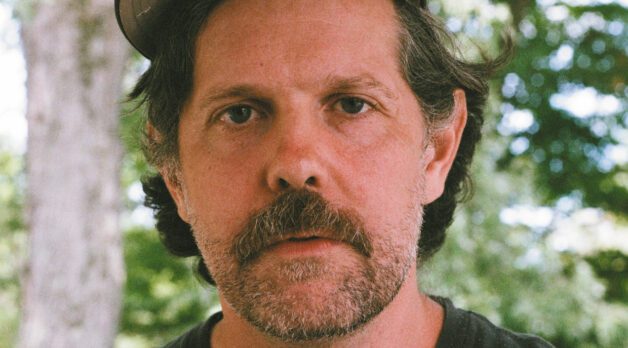Samm Hodges
 Samm Hodges
Samm Hodges

After Samm Hodges’ mother died when he was seven, his father moved him and his three siblings to a small cabin in rural Washington with no electricity or running water. “It was off-grid and had no outhouse—a pretty bad situation,” he remembers. “We had been lower-middle class, and then it was just a free fall. We could barely afford to eat. One month, we ate biscuits and beans for every meal. I did my homework by kerosene lamp.”
As a teenager, Hodges “got involved in drugs, then got scared” and quit. He went to a Bible college in Chicago before losing his faith and immersing himself in theater. The moving image was an interest, but, says Hodges, “I didn’t have a traditional way in. I didn’t go to the right colleges, and I didn’t know [directing] could be a job.” Nonetheless, various forms of self-taught design work followed, along with writing poetry and songs for bandmate friends. The design work led to motion graphics and visual effects until, eight years after college, Hodges was directing big-budget commercials. He also created a web series, Downward Dog, that ABC developed into a half-hour sitcom, which ran for one season in 2017.
Today, Hodges lives in Los Angeles and works as a commercial director and screenwriter. So, when pandemic downtime prompted him to make a personal short, he decided it would be inspired by the world of his teenage and childhood years and use the types of visual effects tools he became proficient in as an adult. With that Sundance-premiering work, Tender—achingly poignant in its depiction of a heavy-set goth teenager bullied by his father over the dad’s misplaced wallet, a downward spiral that culminates in an eerily breathtaking Tarkovsky-esque underwater sequence—Hodges wants to make a statement about the worlds currently depicted in much of studio but also independent storytelling. “There is a lot of [my childhood] in the stories I want to tell, magic realist stories from the fringe,” he says. “Now, all these stories about class are about rich people, like Triangle of Sadness and White Lotus. I think they’re great, but I’m from the shit, and I like people from the shit, and I want to center them [in my work]. Making anything about a poor person is an uphill battle. It’s a real bias, and not one that we talk a lot about.”
Tender was shot in Pittsburgh during the winter of 2021. Hodges had recently spent time in the state shooting videos aimed at rural voters for the senatorial campaign of John Fetterman. “As a kid,” Hodges says, “I was taught to hate the left, or liberals, because I was told they despise me. I was won over by people who invested in and cared about me. And what I love about John is that he has a true respect for people and rural culture.”
Tender was conceived of as a kind of “minimalist storytelling exercise,” says Hodges. “I was thinking about how, growing up, these little things, like a missing wallet, could spiral. I love films like Uncut Gems, where very physical, externalized conflict reveals deep things about character.” Hodges asked the actor John Magaro, whom he met through his manager, Mosaic’s Jimmy Miller, to produce the short with him, and Magaro connected Hodges to actors Will Brill and Louisa Krause, who play the kid’s raging parents. Alexander Hubble, the short’s star, was harder to find because Hodges wanted an actor with a larger body type, and “there’s a lot of bias” in the acting communities, Hodges says. He was found in a Pittsburgh acting class, and Tender is his first time in front of a camera.
The short’s bravura underwater sequence would have cost $200,000 if he had farmed it out, estimates Hodges, So, he worked on that sequence mostly himself for months using Houdini, Octane Render, Maya, Cinema 4D and Nuke—“the whole suite.” The film, now winning awards at festivals like Florida, is a good example of the direction he plans to take with his future storytelling. “I’m passionate about avant-garde filmmaking that can include this full width of tools. We’ve had these Marvel pop films with all the cool visuals, and then art films have to be kind of like, ‘Oh, you’re in a cafe.’ I want to push for these very beautiful, very powerful visuals in things that are no budget.”
Hodges has a number of projects in development that he’ll work on when the Hollywood labor strikes are over. One is an adaptation for David Duchovny of the actor and writer’s novel, Truly Like Lightning, about a family living off-grid. There’s also a “survival thriller” for producer Daniela Taplin Lundberg, as well as a script he hopes will be his first feature, Fix, about an addict who can see the future when she gets high.—Scott Macaulay/Image: Matt McLaughlin
